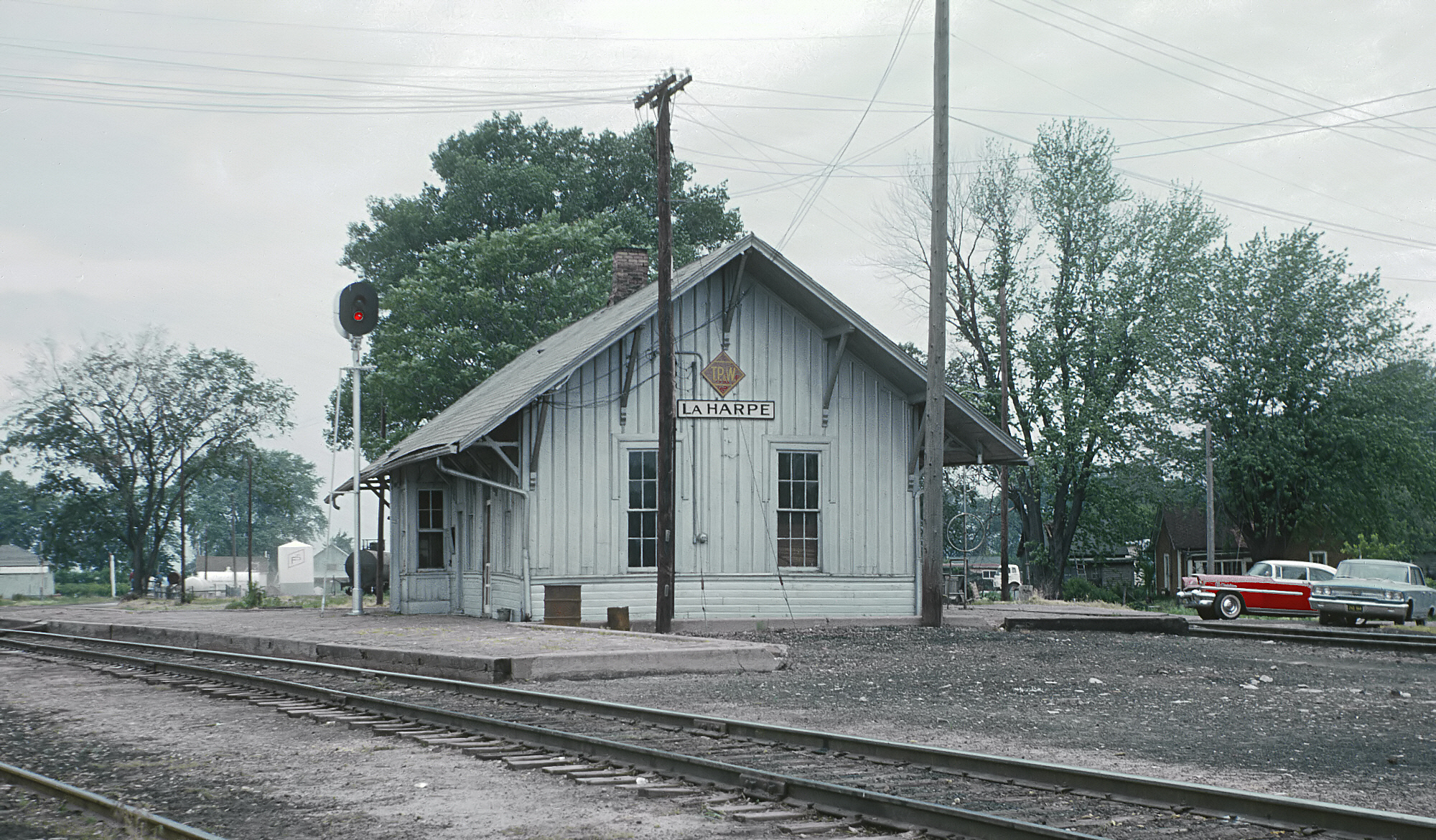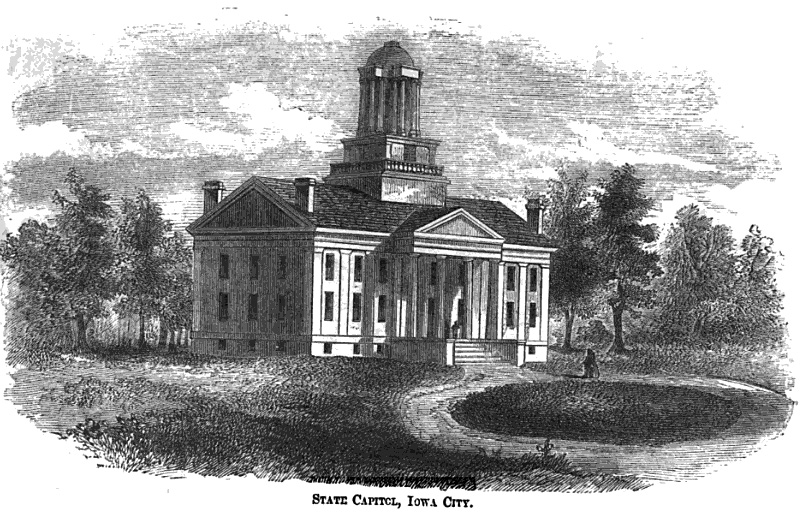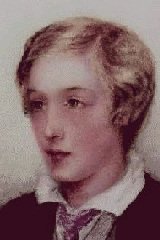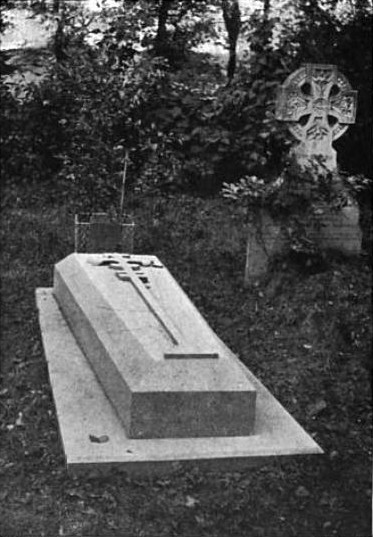|
Robert Bernard Martin
Robert Bernard Martin (1918–1999) was an American scholar and biographer, specializing in Victorian literature. Pseudonym Robert Bernard Life Robert Bernard Martin was born September 11, 1918, in La Harpe, Illinois, to Carl and Maggie Martin. He graduated from high school in Davenport and received his A.B. summa cum laude from the University of Iowa in 1943. During World War II he served in the U.S. Army Air Forces in Italy and France. He was Professor of English at Princeton University from 1951 to 1975, when he retired to Oxford. Martin published several books about the Victorian era, including biographies of Alfred Tennyson, Gerard Manley Hopkins and Edward Fitzgerald. His life of Tennyson won the James Tait Black Award and the Duff Cooper Prize The Duff Cooper Prize is a literary prize awarded annually for the best work of history, biography, political science or occasionally poetry, published in English or French. The prize was established in honour of Duff Cooper, a Briti ... [...More Info...] [...Related Items...] OR: [Wikipedia] [Google] [Baidu] |
Victorian Literature
Victorian literature refers to English literature during the reign of Queen Victoria (1837–1901). The 19th century is considered by some to be the Golden Age of English Literature, especially for British novels. It was in the Victorian era that the novel became the leading literary genre in English. English writing from this era reflects the major transformations in most aspects of English life, from scientific, economic, and technological advances to changes in class structures and the role of religion in society. Famous novelists from this period include Rudyard Kipling, Charles Dickens, William Thackeray, the three Brontë sisters, George Eliot, and Thomas Hardy. While the Romantic period was a time of abstract expression and inward focus, essayists, poets, and novelists during the Victorian era began to direct their attention toward social issues. Writers such as Thomas Carlyle called attention to the dehumanizing effects of the Industrial Revolution and what Carlyle calle ... [...More Info...] [...Related Items...] OR: [Wikipedia] [Google] [Baidu] |
La Harpe, Illinois
La Harpe is a town in Hancock County, Illinois, United States. The population was 1,235 at the 2010 census, down from 1,385 at the 2000 census. History During the 18th century, French explorers headed by Bernard de la Harpe were forced to spend the winter just north of the present city of La Harpe. About 1896, four stone tablets dated June 15, 1715, and inscribed in French were reportedly found a few miles east of the old fortification built by the explorers. Stones were translated locally by the only French family in town as follows: "We are surrounded by indians and have no hope for survival unless help soon arrives." Said stone tablets were reported to be sent to the Smithsonian for authentication, and were ruled a hoax. Their whereabouts are currently unknown. Soon after 1830, landowners in the area began to develop a town which they called "Franklin". In 1836, they applied for a post office and were informed another town in Illinois was already named Franklin. The first pos ... [...More Info...] [...Related Items...] OR: [Wikipedia] [Google] [Baidu] |
University Of Iowa
The University of Iowa (UI, U of I, UIowa, or simply Iowa) is a public university, public research university in Iowa City, Iowa, United States. Founded in 1847, it is the oldest and largest university in the state. The University of Iowa is organized into 12 colleges offering more than 200 areas of study and seven professional degrees. On an urban 1,880-acre campus on the banks of the Iowa River, the University of Iowa is Carnegie Classification of Institutions of Higher Education, classified among "R1: Doctoral Universities – Very high research activity". In fiscal year 2021, research expenditures at Iowa totaled $818 million. The university is best known for its programs in health care, law, and the fine arts, with programs ranking among the top 25 nationally in those areas. The university was the original developer of the Master of Fine Arts degree and it operates the Iowa Writers' Workshop, which has produced 17 of the university's 46 Pulitzer Prize winners. Iowa is a mem ... [...More Info...] [...Related Items...] OR: [Wikipedia] [Google] [Baidu] |
Princeton University
Princeton University is a private university, private research university in Princeton, New Jersey. Founded in 1746 in Elizabeth, New Jersey, Elizabeth as the College of New Jersey, Princeton is the List of Colonial Colleges, fourth-oldest institution of higher education in the United States and one of the nine colonial colleges chartered before the American Revolution. It is one of the highest-ranked universities in the world. The institution moved to Newark, New Jersey, Newark in 1747, and then to the current site nine years later. It officially became a university in 1896 and was subsequently renamed Princeton University. It is a member of the Ivy League. The university is governed by the Trustees of Princeton University and has an endowment of $37.7 billion, the largest List of colleges and universities in the United States by endowment, endowment per student in the United States. Princeton provides undergraduate education, undergraduate and graduate education, graduate in ... [...More Info...] [...Related Items...] OR: [Wikipedia] [Google] [Baidu] |
Alfred Tennyson
Alfred Tennyson, 1st Baron Tennyson (6 August 1809 – 6 October 1892) was an English poet. He was the Poet Laureate during much of Queen Victoria's reign. In 1829, Tennyson was awarded the Chancellor's Gold Medal at Cambridge for one of his first pieces, "Timbuktu". He published his first solo collection of poems, ''Poems, Chiefly Lyrical'', in 1830. "Claribel" and "Mariana", which remain some of Tennyson's most celebrated poems, were included in this volume. Although described by some critics as overly sentimental, his verse soon proved popular and brought Tennyson to the attention of well-known writers of the day, including Samuel Taylor Coleridge. Tennyson's early poetry, with its medievalism and powerful visual imagery, was a major influence on the Pre-Raphaelite Brotherhood. Tennyson also excelled at short lyrics, such as "Break, Break, Break", "The Charge of the Light Brigade", "Tears, Idle Tears", and "Crossing the Bar". Much of his verse was based on classical mythol ... [...More Info...] [...Related Items...] OR: [Wikipedia] [Google] [Baidu] |
Gerard Manley Hopkins
Gerard Manley Hopkins (28 July 1844 – 8 June 1889) was an English poet and Jesuit priest, whose posthumous fame placed him among leading Victorian poets. His prosody – notably his concept of sprung rhythm – established him as an innovator, as did his praise of God through vivid use of imagery and nature. Only after his death did Robert Bridges publish a few of Hopkins's mature poems in anthologies, hoping to prepare for wider acceptance of his style. By 1930 Hopkins's work was seen as one of the most original literary advances of his century. It intrigued such leading 20th-century poets as T. S. Eliot, Dylan Thomas, W. H. Auden, Stephen Spender and Cecil Day-Lewis. Early life and family Gerard Manley Hopkins was born in Stratford, EssexW. H. Gardner (1963), ''Gerard Manley Hopkins: Poems and Prose'' Penguin p. xvi. (now in Greater London), as the eldest of probably nine children to Manley and Catherine Hopkins, née Smith. He was christened at the Anglican church of S ... [...More Info...] [...Related Items...] OR: [Wikipedia] [Google] [Baidu] |
Edward FitzGerald (poet)
Edward FitzGerald or Fitzgerald (31 March 180914 June 1883) was an English poet and writer. His most famous poem is the first and best-known English translation of ''The Rubaiyat of Omar Khayyam'', which has kept its reputation and popularity since the 1860s. Life Edward FitzGerald was born Edward Purcell at Bredfield House in Bredfield, some two miles north of Woodbridge, Suffolk, England, in 1809. In 1818, his father, John Purcell, assumed the name and arms of his wife's family, the FitzGeralds. His elder brother John used the surname Purcell-Fitzgerald from 1858. The change of family name occurred shortly after FitzGerald's mother inherited a second fortune. She had previously inherited over half a million pounds from an aunt, but in 1818, her father died and left her considerably more than that. The FitzGeralds were one of the wealthiest families in England. Edward FitzGerald later commented that all of his relatives were mad; further, that he was insane as well, but was a ... [...More Info...] [...Related Items...] OR: [Wikipedia] [Google] [Baidu] |
James Tait Black Award
The James Tait Black Memorial Prizes are literary prizes awarded for literature written in the English language. They, along with the Hawthornden Prize, are Britain's oldest literary awards. Based at the University of Edinburgh in Scotland, United Kingdom, the prizes were founded in 1919 by Janet Coats Black in memory of her late husband, James Tait Black, a partner in the publishing house of A & C Black Ltd. Prizes are awarded in three categories: Fiction, Biography and Drama (since 2013). History From its inception, the James Tait Black prize was organised without overt publicity. There was a lack of press and publisher attention, initially at least, because Edinburgh was distant from the literary centres of the country. The decision about the award was made by the Regius Chair of Rhetoric and Belles Lettres at the University of Edinburgh. Four winners of the Nobel Prize in Literature received the James Tait Black earlier in their careers: William Golding, Nadine Gordimer and ... [...More Info...] [...Related Items...] OR: [Wikipedia] [Google] [Baidu] |
Duff Cooper Prize
The Duff Cooper Prize is a literary prize awarded annually for the best work of history, biography, political science or occasionally poetry, published in English or French. The prize was established in honour of Duff Cooper, a British diplomat, Cabinet member and author. The prize was first awarded in 1956 to Alan Moorehead for his ''Gallipoli''. At present, the winner receives a first edition copy of Duff Cooper's autobiography '' Old Men Forget'' and a cheque for £5,000. Overview After Duff Cooper's death in 1954, a group of his friends decided to establish a trust to endow a literary prize in his memory. The trust appoints five judges. Two of them are ''ex officio'': the Warden of New College, Oxford, and a member of Duff Cooper's family (initially, Duff Cooper's son, John Julius Norwich for the first thirty-six years, and then John Julius' daughter, Artemis Cooper). The other three judges appointed by the trust serve for five years and they appoint their own successors. The ... [...More Info...] [...Related Items...] OR: [Wikipedia] [Google] [Baidu] |
1918 Births
This year is noted for the end of the World War I, First World War, on the eleventh hour of the eleventh day of the eleventh month, as well as for the Spanish flu pandemic that killed 50–100 million people worldwide. Events Below, the events of World War I have the "WWI" prefix. January * January – 1918 flu pandemic: The "Spanish flu" (influenza) is first observed in Haskell County, Kansas. * January 4 – The Finnish Declaration of Independence is recognized by Russian Soviet Federative Socialist Republic, Soviet Russia, Sweden, German Empire, Germany and France. * January 9 – Battle of Bear Valley: U.S. troops engage Yaqui people, Yaqui Native American warriors in a minor skirmish in Arizona, and one of the last battles of the American Indian Wars between the United States and Native Americans. * January 15 ** The keel of is laid in Britain, the first purpose-designed aircraft carrier to be laid down. ** The Red Army (The Workers and Peasants Red Army) ... [...More Info...] [...Related Items...] OR: [Wikipedia] [Google] [Baidu] |
1999 Deaths
File:1999 Events Collage.png, From left, clockwise: The funeral procession of King Hussein of Jordan in Amman; the 1999 İzmit earthquake kills over 17,000 people in Turkey; the Columbine High School massacre, one of the first major school shootings in the United States; the Year 2000 problem ("Y2K"), perceived as a major concern in the lead-up to the year 2000; the Millennium Dome opens in London; online music downloading platform Napster is launched, soon a source of online piracy; NASA loses both the Mars Climate Orbiter and the Mars Polar Lander; a destroyed T-55 tank near Prizren during the Kosovo War., 300x300px, thumb rect 0 0 200 200 Death and state funeral of King Hussein rect 200 0 400 200 1999 İzmit earthquake rect 400 0 600 200 Columbine High School massacre rect 0 200 300 400 Kosovo War rect 300 200 600 400 Year 2000 problem rect 0 400 200 600 Mars Climate Orbiter rect 200 400 400 600 Napster rect 400 400 600 600 Millennium Dome 1999 was designated as the ... [...More Info...] [...Related Items...] OR: [Wikipedia] [Google] [Baidu] |
People From Hancock County, Illinois
A person ( : people) is a being that has certain capacities or attributes such as reason, morality, consciousness or self-consciousness, and being a part of a culturally established form of social relations such as kinship, ownership of property, or legal responsibility. The defining features of personhood and, consequently, what makes a person count as a person, differ widely among cultures and contexts. In addition to the question of personhood, of what makes a being count as a person to begin with, there are further questions about personal identity and self: both about what makes any particular person that particular person instead of another, and about what makes a person at one time the same person as they were or will be at another time despite any intervening changes. The plural form "people" is often used to refer to an entire nation or ethnic group (as in "a people"), and this was the original meaning of the word; it subsequently acquired its use as a plural form of ... [...More Info...] [...Related Items...] OR: [Wikipedia] [Google] [Baidu] |
_and_Tennyson_talking_and_smoking.jpg)








_1938.jpg)